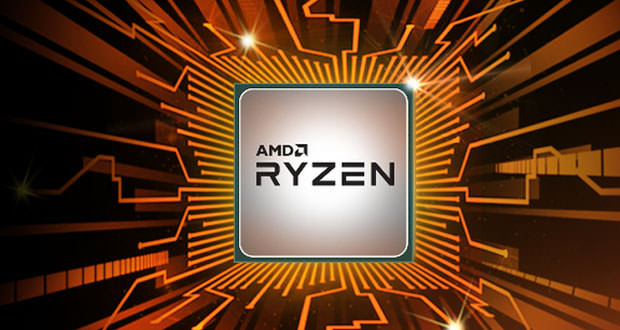AMD Ryzen 3000: +15% in the IPC and increasing clock frequencies
The debut of the next generation of AMD Ryzen processors is approaching: a significant increase in performance is expected for the 3000 series, thanks to the 7 nanometers and the Zen 2 architecture.
One of the novelties expected in the course of 2019, in the field of hardware components, is certainly the debut of the AMD Ryzen processors of the 3000 family. These are models based on Zen 2 architecture and built with 7-nanometer production technology, which will also be compatible with Socket AM4 motherboards currently on the market after updating the bios but which will find the best match in the future platforms with AMD X570 chipsets.
In the last hours some indications on the expected performances of these processors have emerged, compared to the Ryzen 2000 currently on the market. The innovations introduced by AMD with the Zen 2 architecture should allow to obtain an increase in the IPC, ie the number of instructions processed by the CPU for each clock cycle, equal to 15%.
This is presumably the best measurement scenario for this metric, but regardless it is a significant leap forward considering that in the transition from the Ryzen 1000 CPU to the Ryzen 2000 CPU, the increase in the CPI had been around 3%.
Not only: overall performance should also benefit from a leap forward in clock frequency. In the samples currently available to motherboard manufacturers for testing, the maximum clock frequency reaches 4.5 GHz, a value not touched by previous versions of CPU Ryzen 2000 and which could also be slightly higher in products intended for marketing.
For these processors versions are expected that will go beyond the number of 8 cores integrated in the Ryzen proposals now on the market. It now seems certain that some versions will offer 12 cores, but it cannot be ruled out that it can reach up to 16.
An important role in all this is certainly covered by the 7-nanometer production technology adopted for these CPUs, capable of providing greater density as well as increasing overall energy efficiency. The debut of these processors could take place during the month of July, but we will surely know more at Computex 2019 in Taipei, at the end of May. On that occasion, AMD will hold a press conference, we believe some information on the new Ryzen CPUs as well as on the future GPUs of the Radeon family will be anticipated.
One of the novelties of the Ryzen 3000 CPU concerns the integration of PCI Express 4.0 controllers, capable of providing doubled bandwidth for the same number of lines. To take advantage of this feature it will be necessary to use a motherboard based on AMD X570 chipset, a new generation always equipped with AM4 socket.
The information currently available indicates a total of 40 PCI Express 4.0 lines supported as a maximum by this chipset, a proposal that should be the only one in the 500 family to be fully supported by the PCI Express 4.0 controller.
As reported the Ryzen 3000 CPUs will also be compatible with socket AM4 motherboards already on the market, after updating the bios. Exceptions will be those based on AMD A320 chipsets, which should not receive this type of support due to their positioning in the entry level segment, and the requirements of Ryzen 3000 CPUs related to power supply circuitry.

